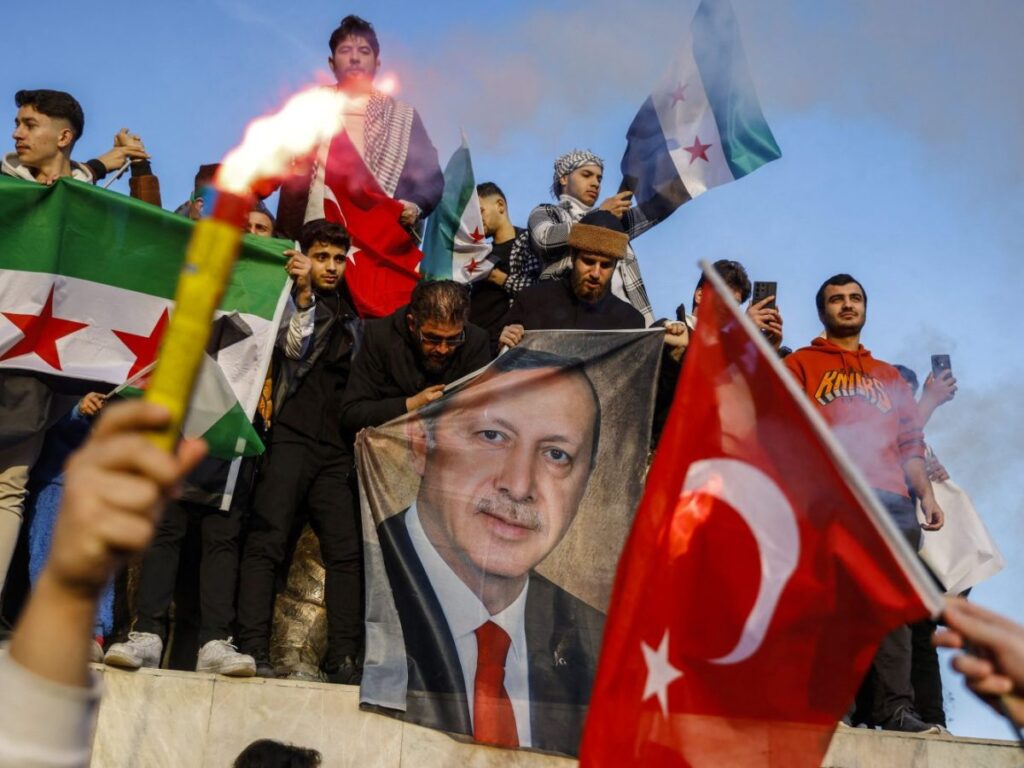Turkey’s involvement in Syria has evolved significantly over the years, transforming from a cautious observer to a key player in the region. This shift in strategy reflects Turkey’s broader geopolitical ambitions and its desire to secure its southern border while asserting its influence across the Middle East. As Ankara deepens its engagement in Syria, the ripple effects are being felt across the region and beyond.
A Strategic Pivot
Turkey’s initial involvement in Syria was largely reactionary, aimed at containing the spillover effects of the Syrian Civil War. However, as the conflict dragged on, Ankara recalibrated its approach. The turning point came in 2016 with the launch of Operation Euphrates Shield, the first of several military campaigns aimed at establishing a buffer zone along Turkey’s southern border. This was followed by Operations Olive Branch, Peace Spring, and Spring Shield, each targeting Kurdish-led forces and other groups deemed a threat by Turkey.
The primary driver behind these operations is Turkey’s longstanding concern over the Kurdish question. Ankara views the Kurdish-led Syrian Democratic Forces (SDF) and its backbone, the People’s Protection Units (YPG), as extensions of the Kurdistan Workers’ Party (PKK), a designated terrorist organization in Turkey. By establishing a buffer zone, Turkey aims to prevent the formation of a contiguous Kurdish territory along its border.
Humanitarian and Demographic Shifts
Beyond security concerns, Turkey has also sought to address the humanitarian crisis caused by the Syrian war. The country hosts approximately 3.7 million Syrian refugees, the largest refugee population globally. Ankara has proposed resettling a significant number of these refugees in the buffer zone it controls, a move that has drawn international criticism for its potential to alter the region’s demographics.
This policy has further complicated Turkey’s relations with other stakeholders in the Syrian conflict, including the Assad regime, Russia, and Iran. While Turkey’s resettlement plans are framed as a humanitarian effort, critics argue that they are also a strategic attempt to dilute Kurdish influence in the region.
Relations with Global Powers
Turkey’s growing influence in Syria has put it at odds with both its NATO allies and regional powers. The U.S., which has supported the SDF in the fight against ISIS, has repeatedly clashed with Turkey over its military campaigns. Despite this, Ankara has managed to strike a delicate balance, maintaining relations with both the U.S. and Russia—a key ally of the Assad regime.
Russia, in particular, plays a pivotal role in Turkey’s Syria strategy. The two countries have coordinated their actions through a series of agreements, such as the Astana Process, which also includes Iran. However, their interests often diverge, especially when it comes to the future of Idlib, the last major rebel stronghold in Syria. While Turkey supports opposition forces in the region, Russia backs the Assad regime’s efforts to retake it.
Implications for the Middle East
Turkey’s actions in Syria are reshaping the regional balance of power. By establishing a foothold in northern Syria, Ankara has positioned itself as an indispensable actor in any future political settlement. This influence extends beyond Syria, affecting Turkey’s relations with Iraq, Iran, and Gulf countries, as well as its broader aspirations for leadership in the Muslim world.
However, Turkey’s involvement is not without risks. Prolonged military engagement and the potential for direct conflict with other major powers, such as Russia or Iran, could escalate tensions. Domestically, the Syrian refugee issue remains a contentious topic, with growing public pressure on the government to address the economic and social challenges associated with hosting millions of displaced people.
Conclusion
As Turkey continues to deepen its involvement in Syria, its actions will have far-reaching consequences for the Middle East. While Ankara’s strategy has bolstered its regional influence, it has also created new challenges and complexities. How Turkey navigates these challenges will not only shape the future of Syria but also its own role as a key power in the region.

